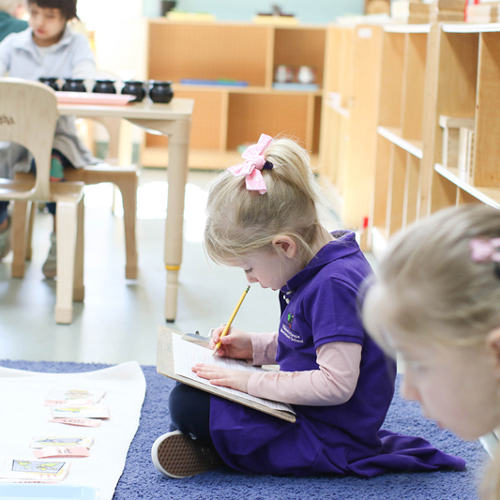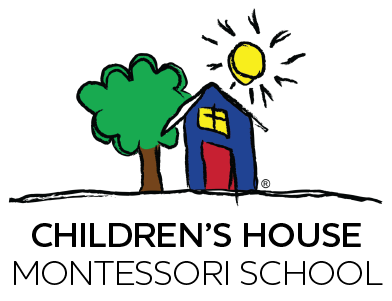Developed in the early 20th century, the Montessori philosophy of education and educational curriculum are more relevant today than ever before. Children learn to engage in a specifically designed Montessori environment, that is organized with purposeful and hands on Montessori materials. Eight subject areas of the classroom offer children multiple opportunities to learn foundational academic, emotional, and social skills. Above all, children learn to think independently and work collaboratively with their older and younger classmates.

The Montessori curriculum includes six areas of study: Practical Life, Sensorial, Math, Language, Geography, and Science. At CHMS, we believe that Art and Music are invaluable subjects and have made them an integral part of our curriculum.
Enhances the development of task organization and cognitive order through care of self, care of the environment, exercises of grace and courtesy, and coordination of physical movement.
Enables children to order, classify and describe sensory impressions in relation to length, width, temperature, mass, color, pitch, etc.
Makes use of manipulative materials to enable children to internalize concepts of number, symbol, sequence, operations, and memorization of basic facts.
Includes oral language development, written expression, reading, the study of grammar, creative dramatics, and children’s literature. Basic reading and writing skills are developed through the use of sandpaper letters, alphabet cut-outs, and various presentations allowing children to link sounds and letter symbols effortlessly and to express their thoughts through writing.
Children learn about each continent and its different countries through specifically designed lessons and presentations, which incorporate language, art and music. Students learn to appreciate the unique characteristics of each country and culture.
Earth science, botany, zoology, and astronomy are examples of subject matters that are covered in the Science curriculum. Science lessons and experiments are often presented in our garden.
Students learn to listen and appreciate music, song, and dance from countries across the Globe. In the classroom, children use their voices and experience the beauty of various musical instruments.
Artwork takes on many forms in the Montessori classroom and is intertwined into each Montessori subject. Children create art that highlights the seasons, holidays, and celebrations throughout the year.
